Ramsgate is a town on the move. It has coastal walks, bargain bike hire and good buses, and is 75 minutes from London on a high-speed train. It’s dynamic in other ways too, fizzing with new projects like its Festival of Sound, a crowdfunding drive to turn an old barge into a floating arts centre and the Active Ramsgate initiative, which promotes newly signed walking and cycling routes, kayaking, kitesurfing, geocaching and golf.
At low tide, you can stroll past white cliffs on long sandy beaches for seven miles from Ramsgate to Margate, passing rock pools and cafes and under a chalk cliff arch between Kingsgate and Botany bays.
I amble over the first couple of surf-edged miles to Broadstairs, stopping for a swim and a cup of tea on the way.
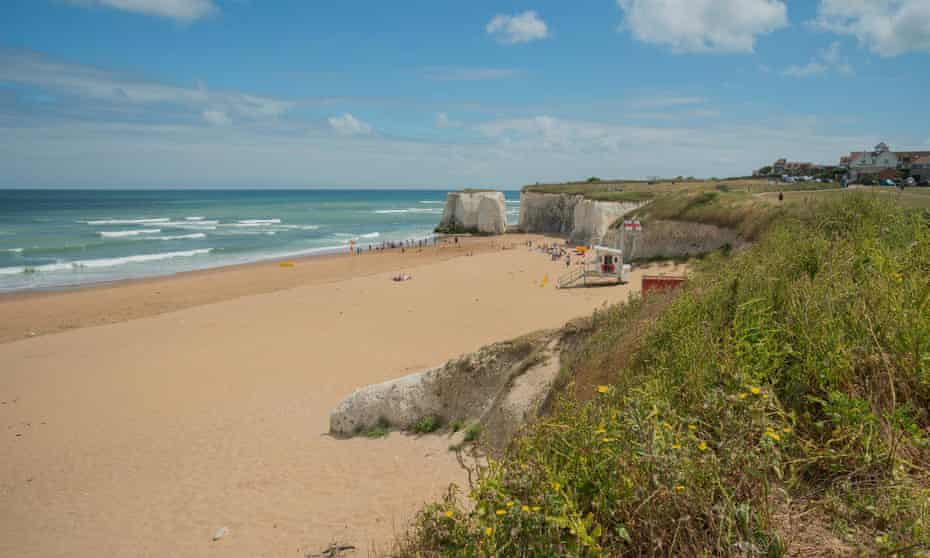
“Charles Dickens never lived here,” reads a slate-carved sign on a house near an Old Curiosity Shop. Almost every other building in Broadstairs seems to have a plaque announcing that Dickens stayed and wrote in it, and there’s a castellated Bleak House on the cliffs above.
You can catch the train or follow the new Sea it All trail back to Ramsgate. At the weekend, you can even ride back on an open-top bus en route 69. A Plusbus ticket (£2.65 with railcard, £4 adult without a railcard and £2 child), adding unlimited buses to a train ticket on the day of travel, is valid on the open-topper. So is a Thanet DayRider for subsequent days (£4.20 on the app). Both tickets cover a huge area and are astonishingly good value.
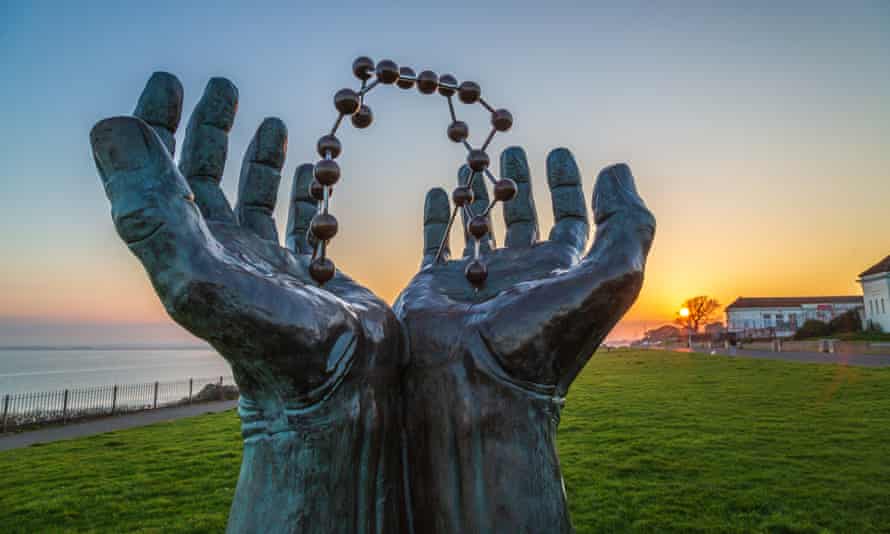
I hop on the Thanet Loop, which runs every eight minutes, and am soon back in Ramsgate by the cafe-lined harbour (celebrating 200 years of royal status this September) for a waterside evening drink. From a brick arch nearby, Harbour Bikes rents out sturdy orange bicycles (£10 a day); a great route to try on them is the new 12-mile Pier-to-Pier cycle trail that runs from Ramsgate to Deal via the medieval town of Sandwich.
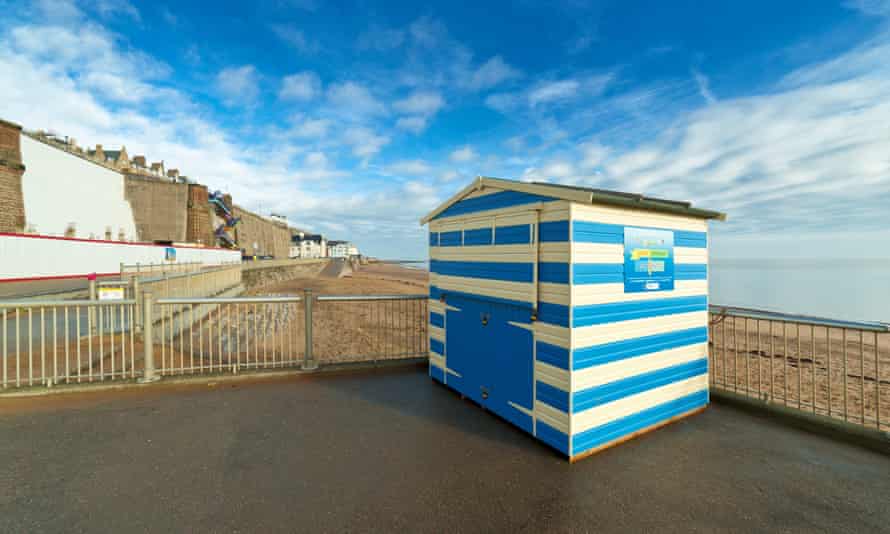
Charcoal nudes and maritime oil paintings crowd the walls of the Royal Harbour Hotel (doubles from £100, room only), where I am staying. Downstairs the candlelit sitting rooms have log fires and libraries of vinyl.
From the window next morning, I can see windswept spray dancing over the rocks behind the lighthouse. A perfect day to visit Thanet’s indoor sights, starting with the Turner Contemporary art gallery, which opened 10 years ago in Margate (free, book ahead). I get off the Loop a few stops early for a blustery bap under the veranda of the Palm Bay beach cafe and a dramatic mile along the flower-topped cliffs.
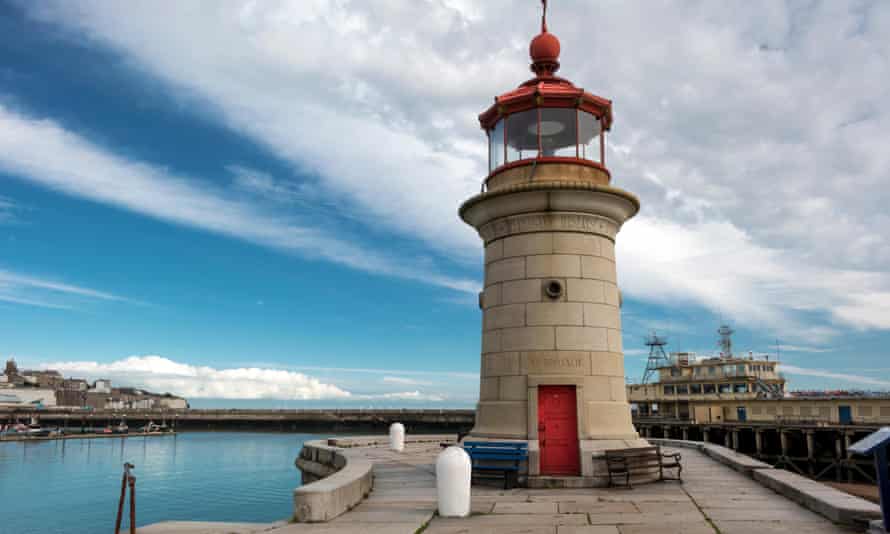
The head of Antony Gormley’s cast-iron figure Another Time is just sticking out of the sea as I arrive. Inside the gallery, there is a enthusiastic display about its first decade and a moving tribute by Steve McQueen to a young man killed by drug dealers in the Caribbean (until 26 September). More than once I find tears are rolling into the top of my face mask. Pop-up caterer Barletta, which also runs the rooftop at Margate’s vintage theme park Dreamland, has taken over the Turner cafe this year. I linger over coffee and a Kentish raspberry tart while the sky and sea outside are locked in a blurry Turneresque skirmish and the wind howls across the sand.
At the far end of the beach, Michael Rakowitz’s statue of a traumatised soldier, an “anti-war memorial”, was unveiled in May. Titled April is the Cruellest Month, the new statue stands next to the shelter where TS Eliot wrote part of The Waste Land. There’s an eclectic seafront food court nearby, including a cafe on a doubledecker bus. In the waiting room of the neighbouring railway station, a tiled mural points out that TS Eliot’s name is an anagram of Toilets.
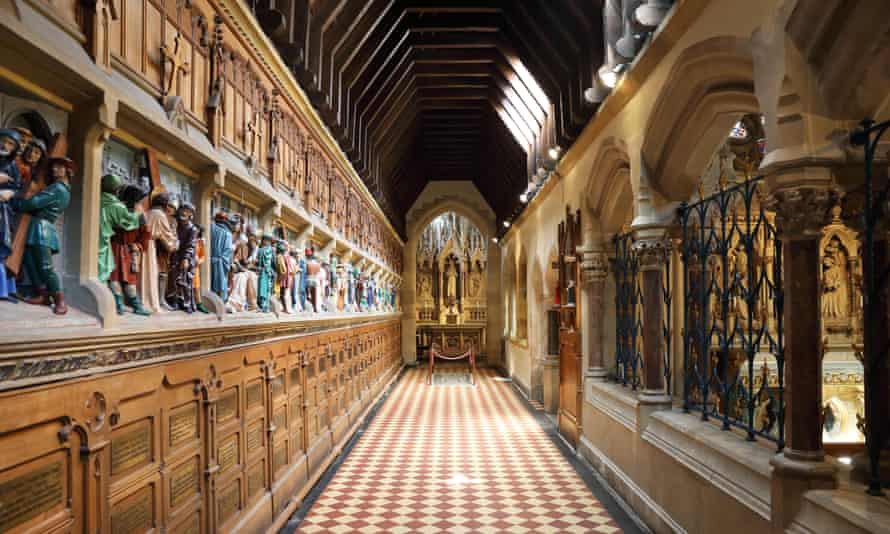
After 12 minutes on a train I’m back in Ramsgate, heading for a flint seaside church built by Augustus Pugin, early 19th-century architect of the Houses of Parliament. The gothic interior, all carved stone and coloured terracotta, now includes Pugin’s own alabaster tomb and there are sea views from the half-wild graveyard (free entry). Inspired by stained glass and resurgent sunshine, I wander through Ramsgate’s regency terraces. There’s a bronze head of Van Gogh, half sunk in sunflowers, in Spencer Square (where the artist lived in 1876), palm trees, marigolds and towering spires of tree echium in Albion Place gardens and a blue plaque to Samuel Taylor Coleridge in Wellington Crescent.
In Ramsgate Tunnels, at the southern end of Marina Esplanade, volunteer guides lead torch-wielding visitors into the darkness of a Victorian railway tunnel, where thousands of civilians lived during the second world war. The commentary is an engaging mix of local history, engineering, anecdotes about everyday life underground (the stench of latrines and paraffin stoves) and a smattering of Blitz Spirit nostalgia (£8 adults, £5 children).
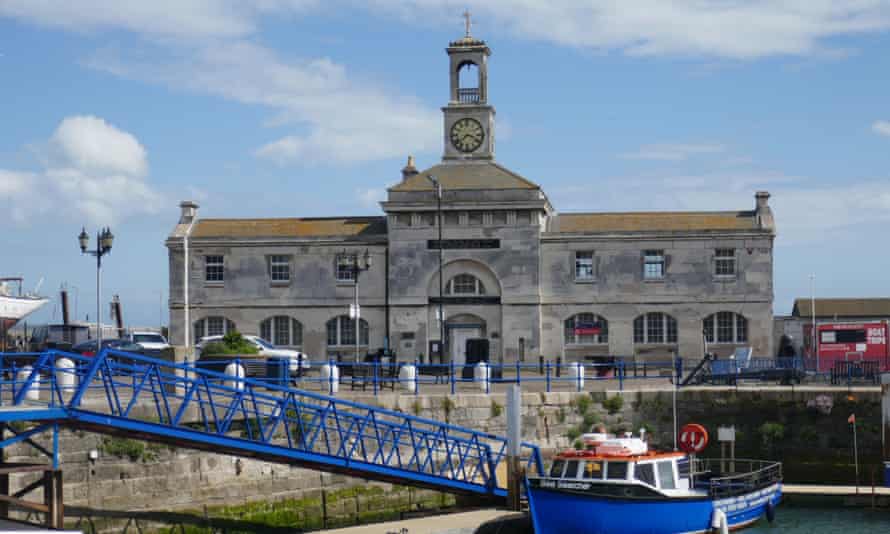
In an old clocktower by the harbour, the Maritime Museum has just reopened after a closure that predated the pandemic (£2.50, Tues-Sun 10am-5.30pm). Eclectic exhibits include musket shot and caulking mallets, pacifist graffiti from a military detention centre, a collection of lighthouse puzzles, and a dolphin skeleton hanging in the rafters. Nearby an installation by Conrad Shawcross is arriving soon and Ring Ring, an ice-cream shop in two phone boxes, is due to open this weekend or “when the sun is shining” as its Instagram page says.
Lila Allen, editor of the Ramsgate Recorder, tells me over a glass of rosé how “new things are popping up all the time”: a local designer is opening a studio-shop, there’s a micropub with an all-female staff, which opened in May, and lots more. For late July, the Recorder, which just re-introduced its “what’s on” page, lists a regatta, a carnival and several art exhibitions.
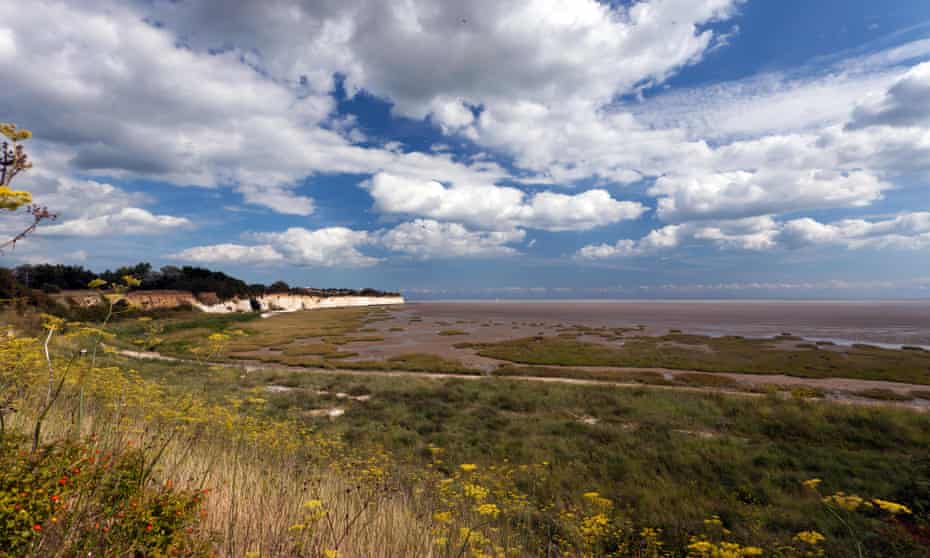
On my last day I visit the 18th-century Belle Vue pub – which lives up to its name; I’m looking out across miles of shining water, dotted with windsurfers – on my way to Pegwell nature reserve. This watery landscape, where egrets wade among thickets of wild fennel, is an easy two-mile walk or cycle ride from Ramsgate. Wildlife film-maker Keith Ross leads bespoke birdwatching tours here (full day £30pp).




